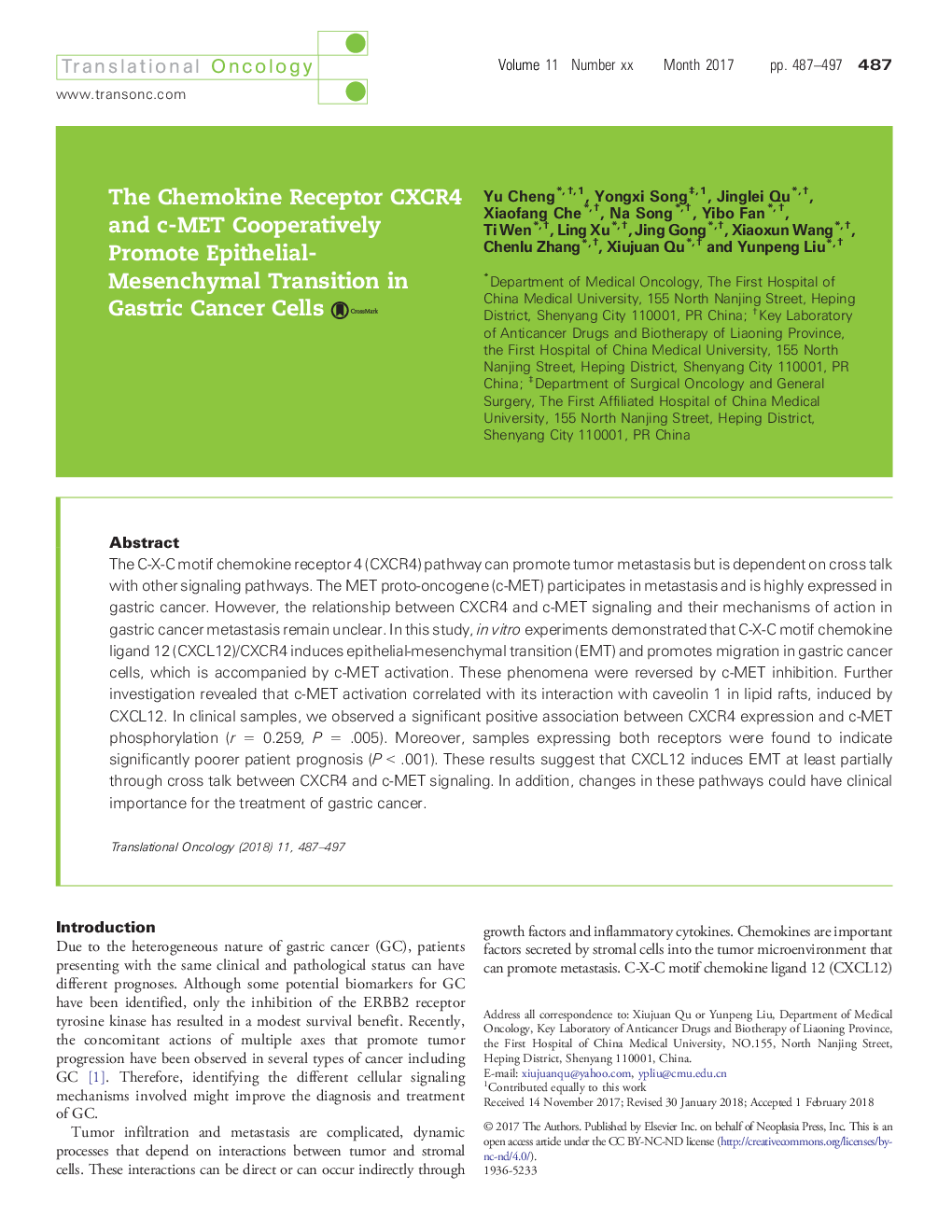| Article ID | Journal | Published Year | Pages | File Type |
|---|---|---|---|---|
| 8460004 | Translational Oncology | 2018 | 11 Pages |
Abstract
The C-X-C motif chemokine receptor 4 (CXCR4) pathway can promote tumor metastasis but is dependent on cross talk with other signaling pathways. The MET proto-oncogene (c-MET) participates in metastasis and is highly expressed in gastric cancer. However, the relationship between CXCR4 and c-MET signaling and their mechanisms of action in gastric cancer metastasis remain unclear. In this study, in vitro experiments demonstrated that C-X-C motif chemokine ligand 12 (CXCL12)/CXCR4 induces epithelial-mesenchymal transition (EMT) and promotes migration in gastric cancer cells, which is accompanied by c-MET activation. These phenomena were reversed by c-MET inhibition. Further investigation revealed that c-MET activation correlated with its interaction with caveolin 1 in lipid rafts, induced by CXCL12. In clinical samples, we observed a significant positive association between CXCR4 expression and c-MET phosphorylation (r = 0.259, P = .005). Moreover, samples expressing both receptors were found to indicate significantly poorer patient prognosis (P < .001). These results suggest that CXCL12 induces EMT at least partially through cross talk between CXCR4 and c-MET signaling. In addition, changes in these pathways could have clinical importance for the treatment of gastric cancer.
Related Topics
Life Sciences
Biochemistry, Genetics and Molecular Biology
Cancer Research
Authors
Yu Cheng, Yongxi Song, Jinglei Qu, Xiaofang Che, Na Song, Yibo Fan, Ti Wen, Ling Xu, Jing Gong, Xiaoxun Wang, Chenlu Zhang, Xiujuan Qu, Yunpeng Liu,
